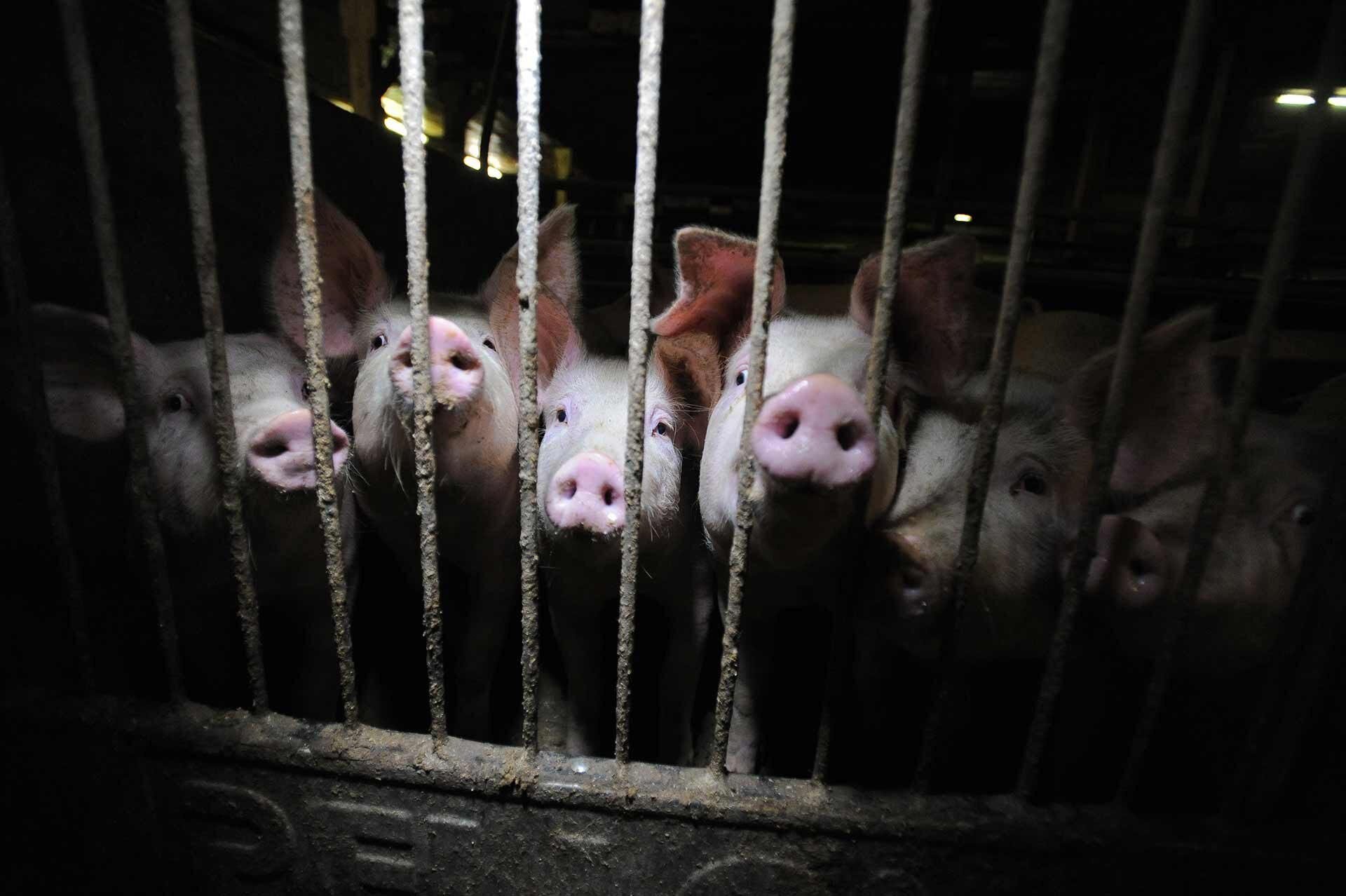Feeding Antibiotics To U.S. Farmed Animals ‘May Undermine Drugs for Cancer, Covid and Infections’
Planned US-UK trade deal reignites controversy over the dangerous practise of feeding antibiotics to farmed animals, as the drugs have carcinogenic properties and also risk causing antibiotic resistance in humans.
Credit: Jo-Anne McArthur / We Animals
The dangerous, widespread practise of feeding antibiotics to animals to speed their growth and keep them alive on cramped and filthy factory farms has once again been put into the spotlight.
A planned trade deal between the US and the UK has highlighted the US’ continued use of harmful antibiotics that are linked to causing cancer and increasing human resistance to antibiotics, reports The Independent.
With the US hoping to sell its meat and poultry products to the UK under the new deal, experts in the UK have warned that there are 10 antibiotics that are banned in the UK but are still widely used in the US to speed the animal’s growth and kill parasites.
Experts have repeatedly warned that the use of antibiotics on farmed animals is extremely dangerous to human health, but the practise remains widespread around the world. In particular, the rise of factory farms in the US has spurred the use of more and more antibiotics, as farmed animals are pumped full of medicine in order for them to stay alive and grow more quickly on cramped and filthy factory farms.
This practise risks creating a potentially-devastating human resistance to antibiotics. The United Nations (UN) have repeatedly warned that antibiotic-resistant bacteria is increasing: at least 700,000 people die every year from drug-resistant diseases, and the UN says that number could increase to 10 million deaths annually by 2050 if no action is taken.
And experts in the UK who analyzed the potential trade deal, also warn that the UK-banned drugs still widely used in the US even risk causing cancer:
“In one case (that of carbadox) the principal concern is not antibiotic resistance, but the drug’s carcinogenic properties and the potential for residues in pig meat. The [Food and Drug Administration] has been facing strong opposition from the industry for four years over its attempts to ban this antibiotic in pig production,” the report said.
Another growth-promoting drug, called ractomine, is still used in the US, despite being banned in the likes of China, Russia, and the EU, over its “possible detrimental impacts on heart and cardiovascular health, from residues of the drug in meat and offal”.
The EU is reportedly seeking to ban all preventative uses of antibiotics in animals from 2022.
More stories:
Species Unite
A collection of stories of those who fight the good fight on behalf of animals.




Leather, wool, feathers: even if they were by-products, would that make a difference?